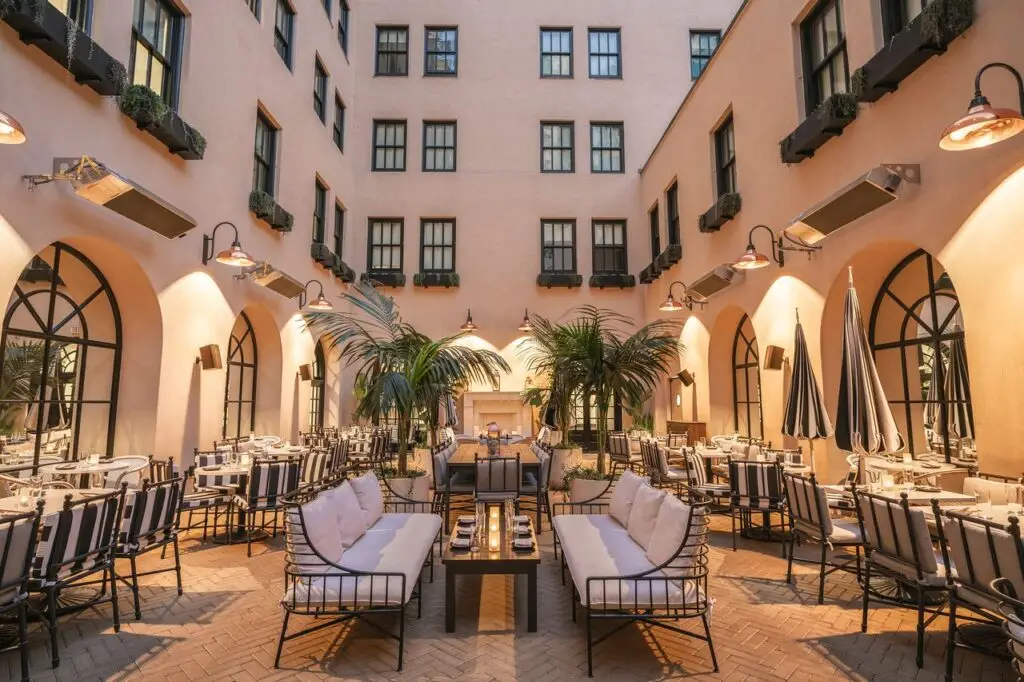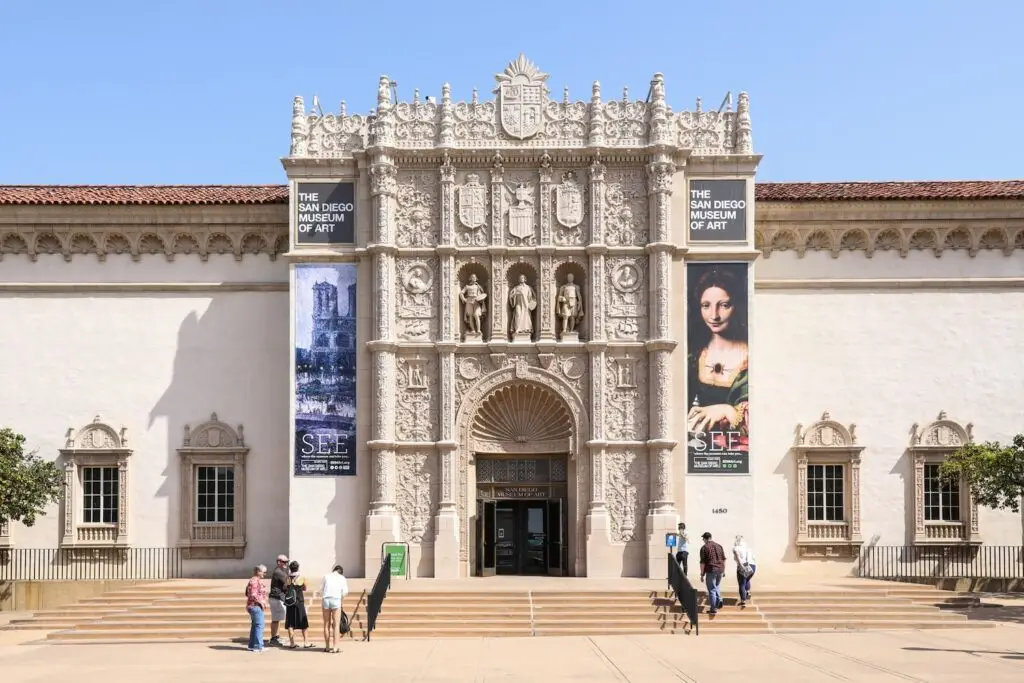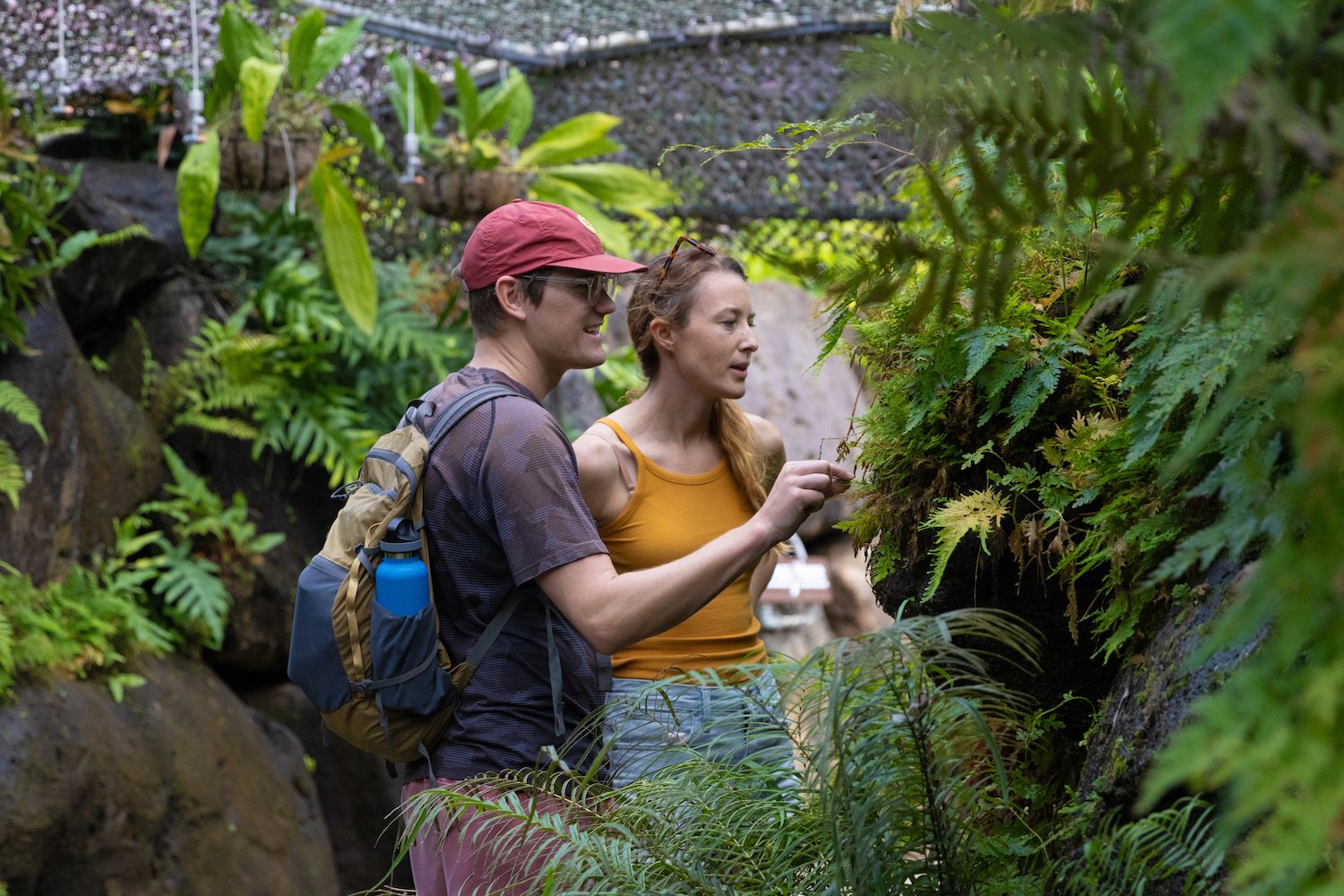I went to Kauai in search of some green.
During my first visit there in 2018 for a botanical-themed journalism fellowship, I developed a newfound appreciation for the mystifying wonder of plants—their astounding diversity, limitless complexity, and extraordinary beauty. Returning this winter from a gray-skied San Diego, I wanted to reconnect with that sunny greenery.
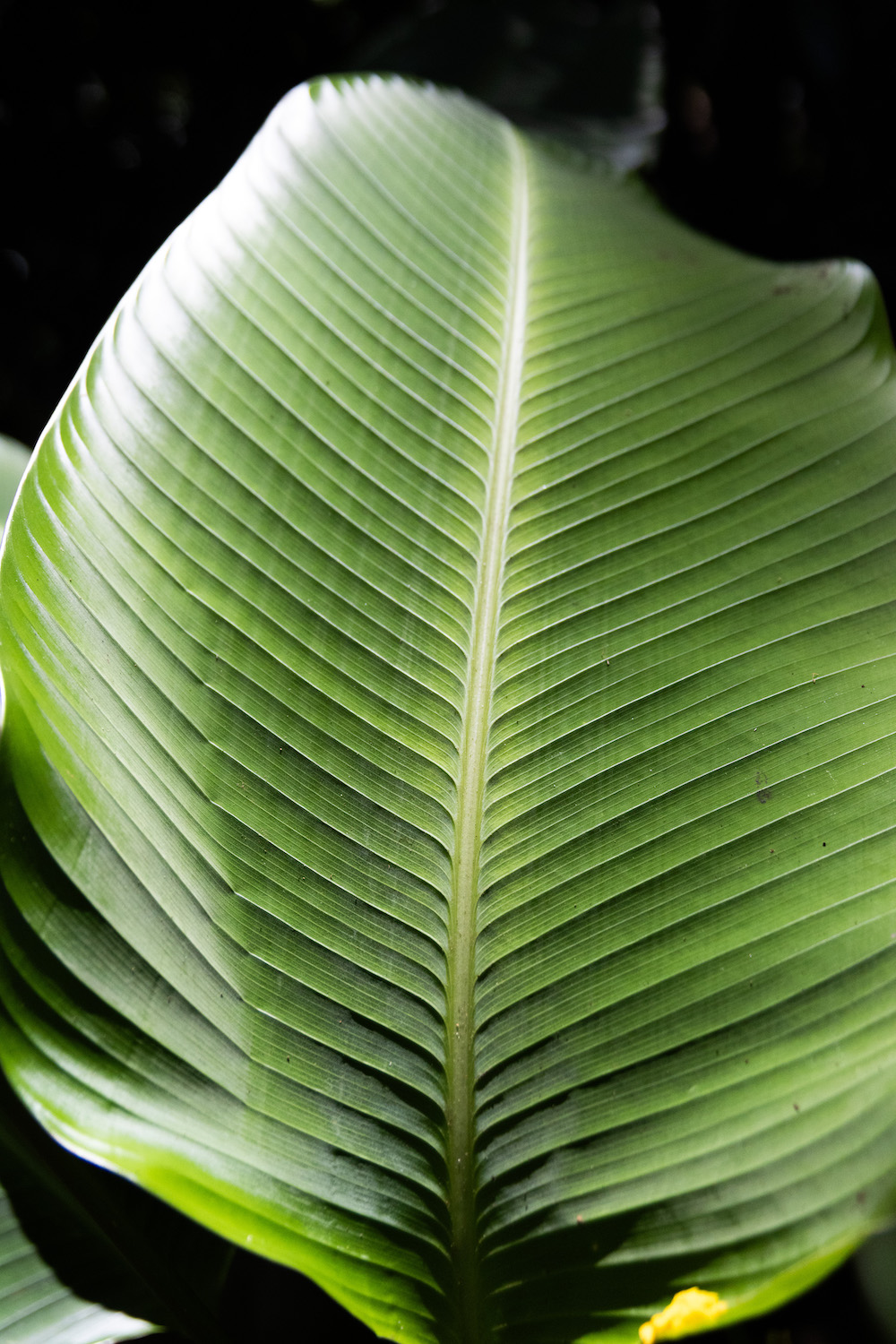
A sampling of the flora thriving at the 200-acre McBryde Garden on Kauai.
Known as the Garden Island, Hawai‘i’s most westerly offering is a verdant blotch of craggy jungled peaks and sluicing waterfalls. This violent, mesmerizing topography, and in particular its central peak, Mount Waialeale—meaning “a rippling on the water”—is the cause of Kauai’s plentiful rainfall, the most of any Hawai‘ian island. (In fact, it’s one of the rainiest places on earth.) These sharply rising mountains propel moist air skywards, where it cools and condenses into bursting clouds. The plants are happy on Kauai, and so am I.
Evidence of Kauaians’ affinity for the botanical world is everywhere on the island. Fruit and vegetable stands dot the roadsides. Everyone seems to garden. Wellness shops abound, hawking products like kava, an herbal depressant made from roots, and noni, a medicinal fruit.
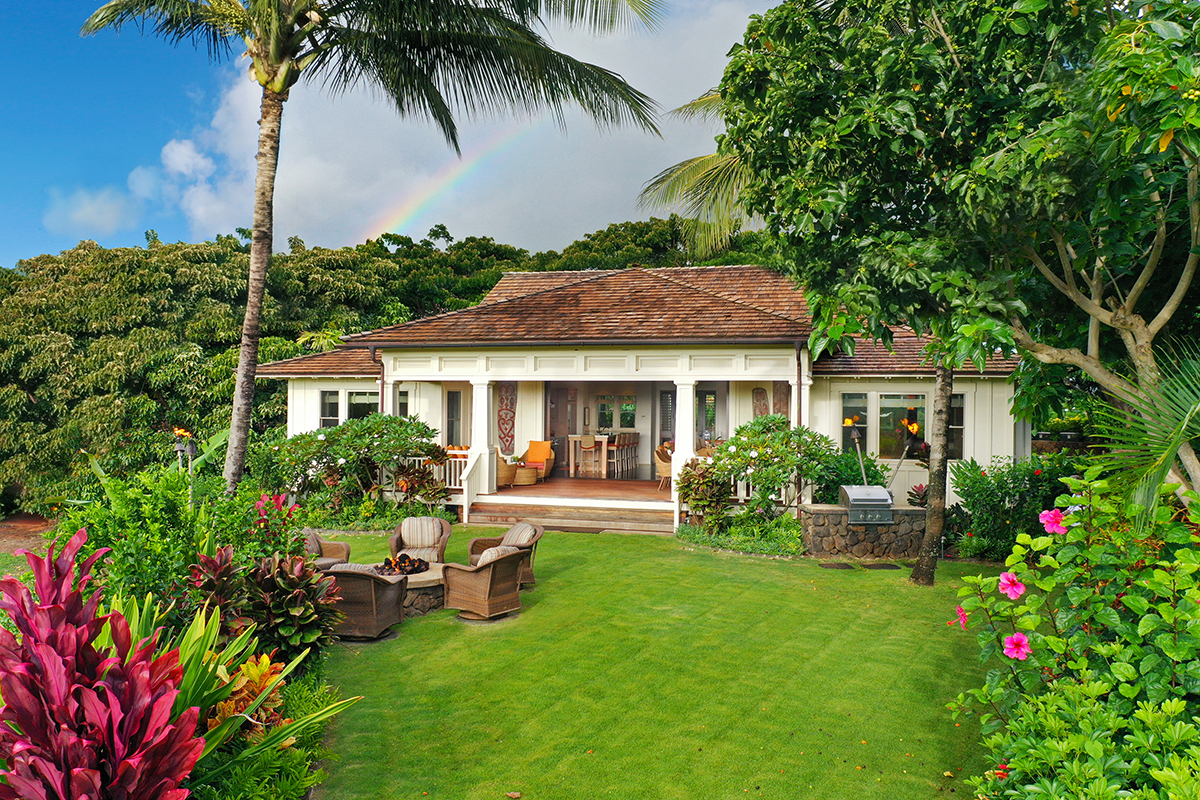
The Lodge at Kukui‘ula overlooks the harbor of the same name.
As soon as I arrived at my hotel, the Lodge at Kukui‘ula, I was adorned with a lei of pua kenikeni, a pale yellow flower with a scent reminiscent of plumeria; traditionally, these pretty blooms signify affection and respect. The welcome christening occurred in view of both Kukui‘ula Harbor and the property’s communal farm stand, which boasts papaya, turmeric, and edible yellow nasturtium flowers, all harvested from Kukui’ula’s 10-acre farm.
The fellowship I’d attended in 2018 was hosted by the National Tropical Botanical Garden, a federal research organization which advocates for Hawai‘i’s indigenous flora. “Our connections with this landscape and our connections with these plants have always been,” says Lei Wann, an NTBG conservationist and Kauai native. “It’s a tradition that has been handed down from generation to generation.”
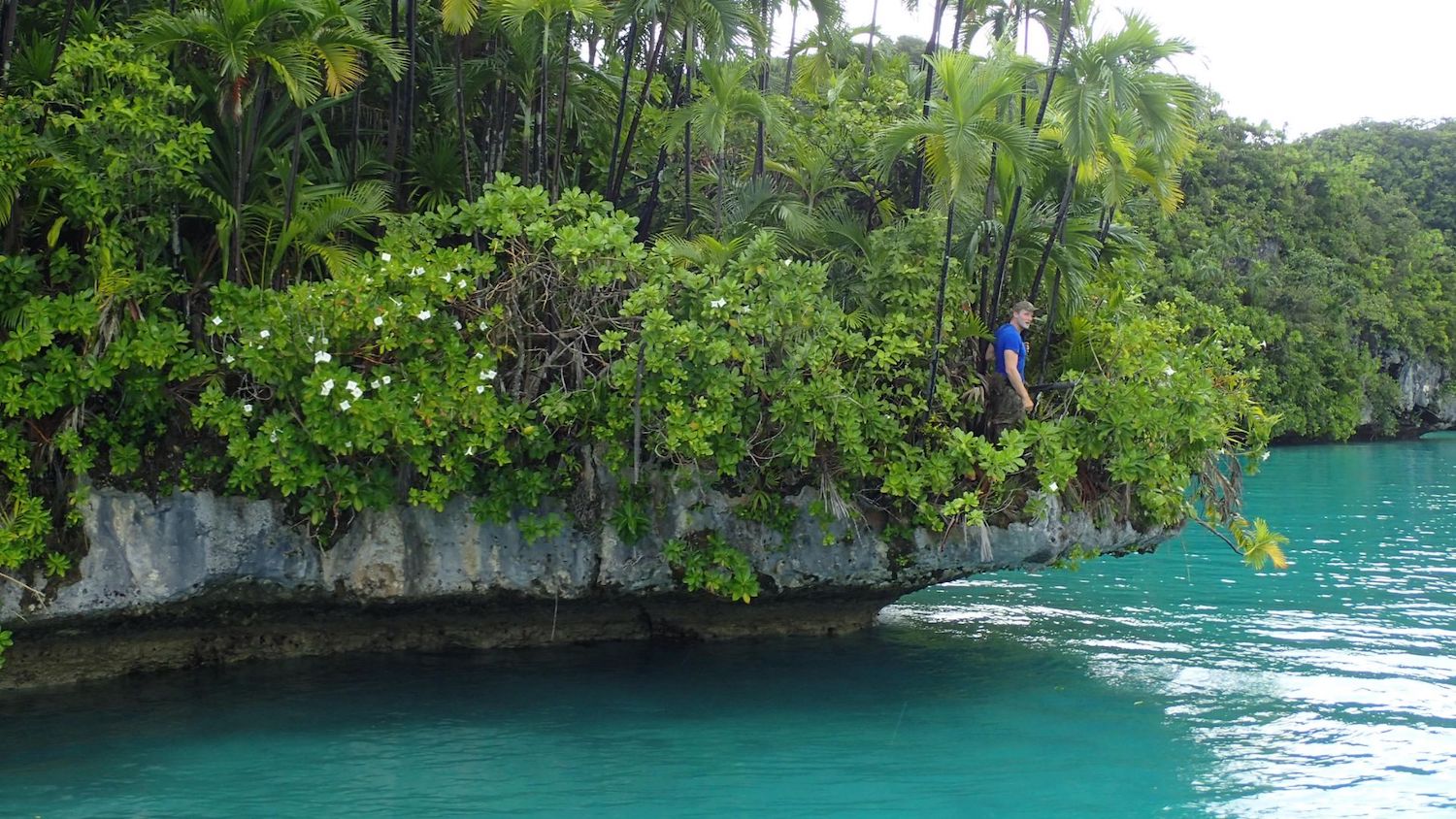
On a slow-going island, NTBG is a flurry of activity. Its brave botanists scale steep mountain ridges in search of rare plants. In pristine labs, biologists inspect germplasm under microscopes. The org’s seed bank houses 17 million seeds from 533 native flora, such as Hawai‘i’s foundational ‘ōhi‘a trees, which are currently threatened by a marauding fungus. There is also ‘ekaha, or bird’s nest fern, the feathery leaves of which adorn hula altars and are used in canoe-cutting ceremonies, and loululelo, a critically endangered fan palm whose name means “umbrella” because the large leaves were utilized for protection from the rain and sun. Some two dozen gardeners tend to every tropical plant you can imagine. NTBG guides, like Oahu-born Randy Bartlett, cart bug-eyed visitors into these sprawling edens to explore.
“If you look to your right, there’s a patch of bananas waving gently in the breeze,” Bartlett says as we descend a bumpy path in an air-conditioned van, heading deep into the bowels of the 200-acre McBryde Garden, NTBG’s flagship grounds. “They are usually pretty friendly. If you wave, they’ll wave back.”

During our drive, Bartlett identifies obscure plant species with all the gusto of a safari guide pointing out rhinos. It is clear from his commentary that Kauai is a global smorgasbord of plant life, like a botanical Babel: fig trees from Queensland, Indian and Chinese banyans, African tulip trees. Local plant enthusiasts, who observe strict divisions between native and non-native entities, are not so enthused about this; throughout Hawai‘i, invasive species wreak ecological havoc (though, it should be said, not all foreign species are invasive, meaning species that uncontrollably proliferate). If you spot these intruders, such as kahili ginger or strawberry guava, botanists recommend uprooting them.
Eighty percent of the 1,200 plant species native to Hawai‘i are endemic—they are found nowhere else on earth.
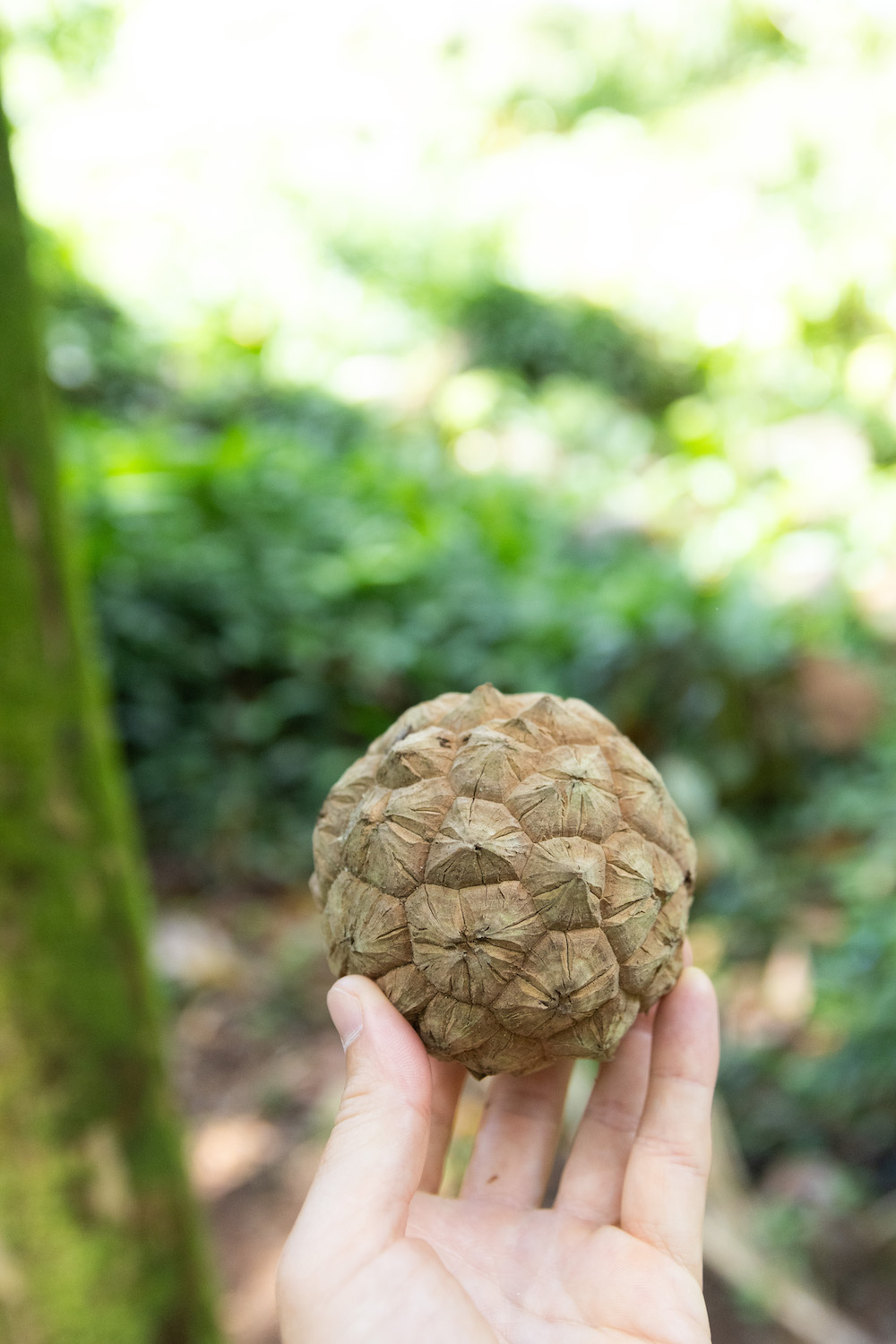
The edible fruit of the very rare vahana palm tree.
Many Hawai‘ians harbor a deep reverence for these plants, stemming from both biological interest and cultural affinity. In ancient times, the indigenous people of Hawai‘i found practical and religious uses for nearly every one.
Hala, for instance, a zany, stilted species also known as “the walking tree,” is a veritable Swiss Army knife of native utility, used for thatching roofs; weaving baskets, mats, hats, fans, and hula adornments; and crafting medicine to treat wounds, fever, and diarrhea—and it’s edible. Today, scientists glean important insights from its unique properties, too.

Known for its spectacular waterfalls, Kauai is one of the rainiest places on Earth.
“Our gardens have really become habitats for not just the plant itself but this whole ecosystem to function,” says Wann, who specializes in ahupua’a, a conservation practice informed by indigenous Hawai‘ian techniques and knowledge systems. Adherents follow natural watersheds in establishing plot boundaries and practice crop rotation, among other ancient sustainable approaches on land and at sea. “It’s really the footprint of our ahupua’a ways of life that guide our knowledge, our research, and the ways in which we engage in this landscape,” Wann adds.
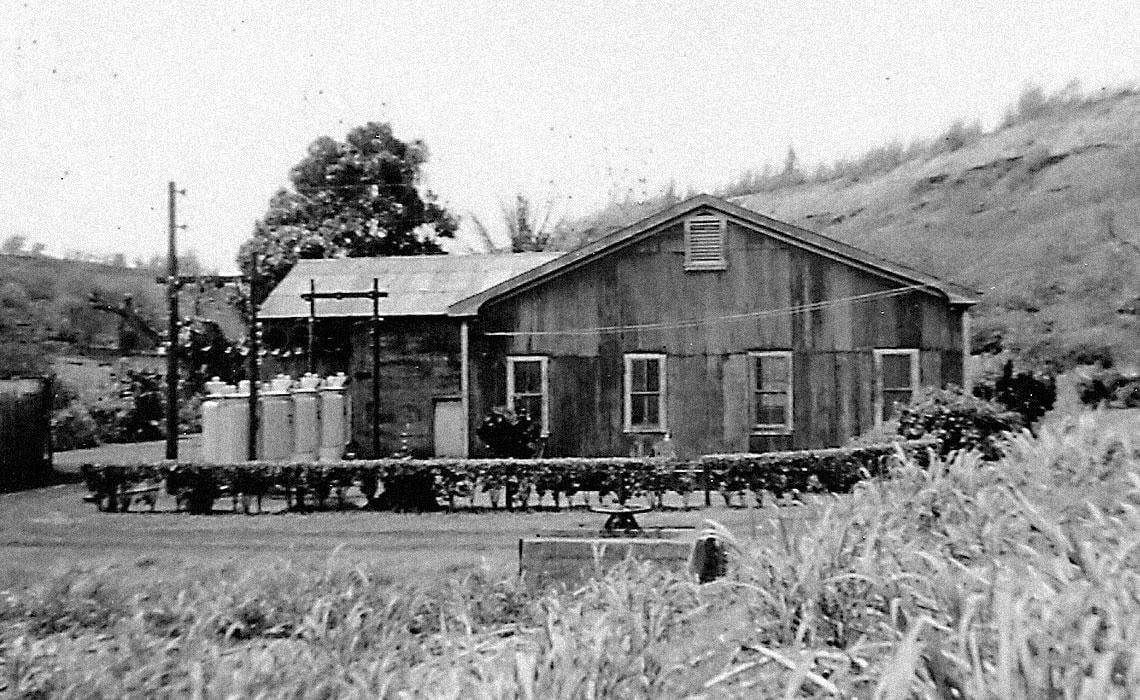
The McBryde Garden
The first humans to introduce new plants to Hawai‘i were Polynesian seafarers, who settled the islands sometime between the 4th and 7th centuries (the reigning theory is that these explorers came from the Marquesas Islands). For medicines, supplies, and food, they shipped 27 species of plants alongside them, including bananas, breadfruit, and coconuts. Botanists today refer to these species as “canoe plants.” Often cultivated for their practical and cultural significance, canoe plants are generally not considered invasive as they do not threaten other species.
Strolling through McBryde, I spot happy specimens of several: paper mulberry, hibiscus, and milo, which provided the original Hawai‘ians with fibers, cordage, and wood, and turmeric and shampoo ginger, which had medicinal uses. I see plenty of taro, another canoe plant, with its floppy waxen leaves. Later, I’ll enjoy the sweet purple tuber in soup form at Merriman’s, a spectacular farm-to-table restaurant, alongside tako escargot and grilled ono.
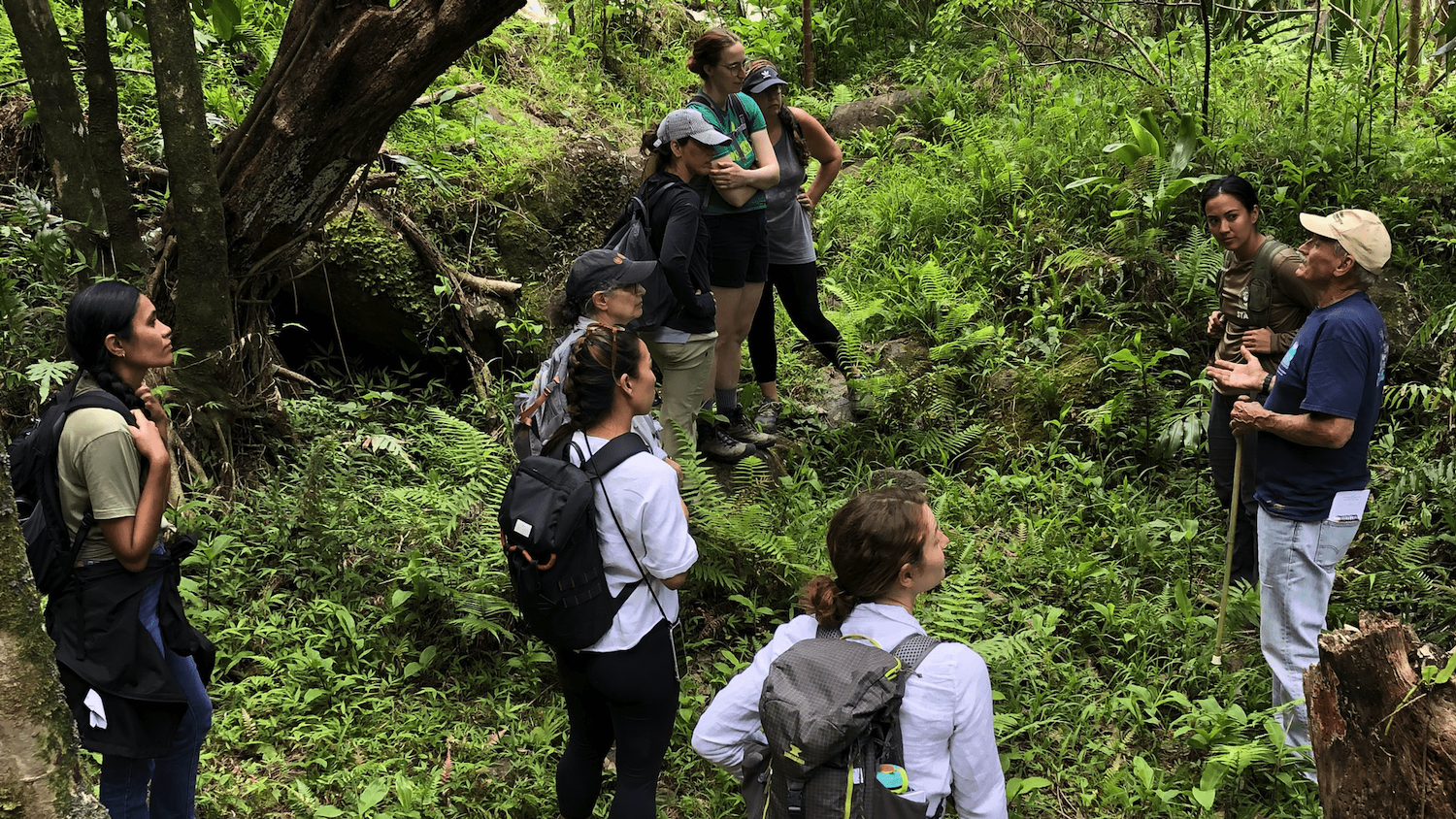
For NTBG, success means continuation: more preservation, more research, and more public education. They have an impressive track record—NTBG botanists have been associated with the discovery of at least 123 new plants, which includes 59 new species in Hawai‘i alongside the rediscovery of nearly 40 Hawai‘ian species previously thought to have disappeared. Scientists are conducting research to better grasp how certain native plants are affected by the increased salinity that comes with rising sea levels or to learn how to maintain genetic diversity in populations of threatened species, among other research endeavors.
PARTNER CONTENT
But, perhaps most importantly, NTBG has helped drive a wider commitment to tropical plant conservation among both botanist circles and the general public. Though “National” is in the name, the organization actually relies on individual donations to survive. Visitors and donors play a vital role in continuing their important work. “We really stress that we are a non-government, nonprofit organization, and that is why public engagement—membership, tours, donations—is so very important to keep us going,” says Jon Letman, editor of NTBG’s Bulletin magazine. “That is our bread and butter.”
These days, there is a lot of interest in regenerative tourism and environmentally focused travel—tourism that aids ecosystems rather than spoils them. Yet rarely have I felt more environmentally attuned or conscious of the importance of ecological regeneration than I did after having explored the vast, rousing gardens of NTBG. While there, you remember that plants are really and truly alive, and that you are too— because of them.

